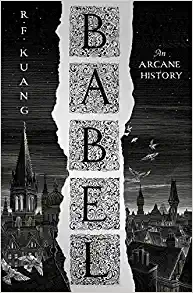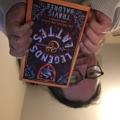Story is great, reading the book is ... well
3 stars
A story about what makes an empire run is thrilling, although not surprising. Babel is a fantasy novel you can totally apply to the real world. Money, (modern) colonialism and slavery, wars ... all the tools of economic power. I also loved to learn about etymology and language in general. As one who reads a lot and loves to read it doesn't come as a huge surprise that magic lies in words.
The reason for my mediocre rating is the book itself. I like the way she writes but she uses a ton of footnotes. Some of them necessary, most of them not. those would have fitted in one way or another in the text itself. For me, the footnotes hindered the flow of reading so it was really hard - especially in the beginning of the book - to get "into the zone".
Especially the ebook version is awful …
A story about what makes an empire run is thrilling, although not surprising. Babel is a fantasy novel you can totally apply to the real world. Money, (modern) colonialism and slavery, wars ... all the tools of economic power. I also loved to learn about etymology and language in general. As one who reads a lot and loves to read it doesn't come as a huge surprise that magic lies in words.
The reason for my mediocre rating is the book itself. I like the way she writes but she uses a ton of footnotes. Some of them necessary, most of them not. those would have fitted in one way or another in the text itself. For me, the footnotes hindered the flow of reading so it was really hard - especially in the beginning of the book - to get "into the zone".
Especially the ebook version is awful since you are jumping back and forth. For that I preferred the paperback since it made it easier to stick to it.
It's a pity that the book only got interesting during the last third.









